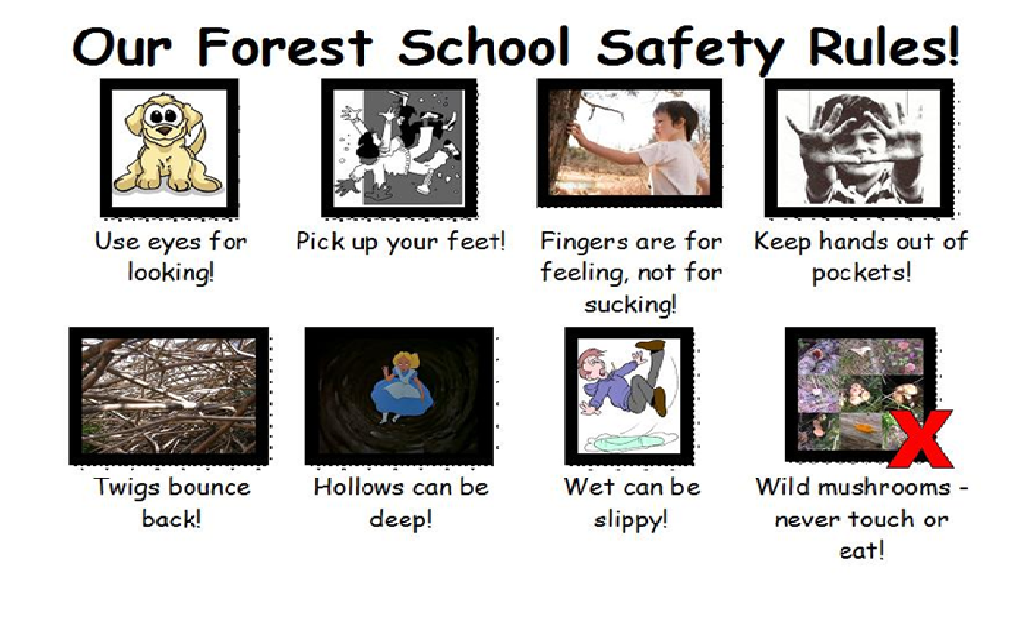What are Forest Schools?
The philosophy of Forest Schools (FS) is to encourage and inspire individuals through positive and hands on experiences in nature. Essential personal, social and emotional skills are developed through consistent participation in motivating and achievable outdoor activities. Through regular attendance at Forest School our children develop an appreciation for nature, ecosystems and wildlife. Through practical experience the children learn many valuable skills such as problem solving and how to handle risks as well as building their confidence and self-esteem.
- FS is a long-term process of regular sessions, rather than a one-off or infrequent visits; the cycle of planning, observation, adaptation and review links each session.
- FS takes place in a woodland or natural environment to support the development of a relationship between the learner and the natural world.
- FS uses a range of learner-centred processes to create a community for being, development and learning.
- FS aims to promote the holistic development of all those involved, fostering resilient, confident, independent and creative learners.
- FS offers learners the opportunity to take supported risks appropriate to the environment and to themselves.
- FS is overseen by Forest School practitioners who continuously maintain and develop their professional practice.
Where will we go?
At Naphill and Walters Ash School we have a dedicated area of woodland at the end of our school field which is used for Forest School. We also use our willow dome, an area of long grass, a log circle, the fort and some small orchard trees.
What skills do we learn at Forest school?
The activities we provide encourage the children to develop:
Confidence Collaboration Co-ordination Concentration
Communication Creativity Co-operation Competence
We regularly see our 5 R’s in action:
Resourcefulness Responsibility Reflection Reasoning Respect
Safety in the forest?
A thorough risk assessment of the area and activities are carried out regularly. Most Forest School Leaders are outdoor first aid trained and we have comprehensive emergency procedures in place. Being on site we can still quickly access support and First Aid should it be needed. The children are taught how to identify and manage risks through the use of the safety talk we do before each visit using the safety rules poster.

What to wear?
Children must wear their Forest School clothes (ideally tracksuit bottoms and long sleeved top with their school jumper) to school on their allotted Forest School day. This works well for both comfort and warmth, thermals/tights can then also be worn underneath in colder weather. Experience shows that the children are both warmer and less constrained in several thinner layers rather than one large puffy coat. In warmer weather children can wear shorts into school but must have appropriate long clothing in a bag. School provides waterproof dungarees and coat to go over the children’s own clothes and coats. Due to the nature of the sessions they may sometimes get wet socks or trousers, please provide your child with a spare set of clothes to change into if necessary. All Forest School clothing must be named in marker pen. KS1 and Reception children are required to have a pair of wellington boots to leave in school-please note trainer socks do not work with welly boots & the children need appropriate socks on the day.
In summer apply sun cream to the children before school and provide a summer hat. In winter please ensure children have warm winter hats and gloves.
How will it run?
Each group or class will be accompanied by at least 2 adults from school, 3 in Reception.
Forest School is flexible; sessions may vary and be longer or shorter depending on the activity and some classes may go out more or less often. There may also be more adults accompanying groups but never less.

